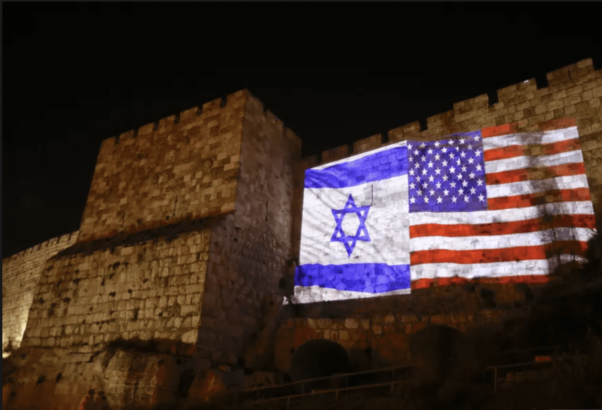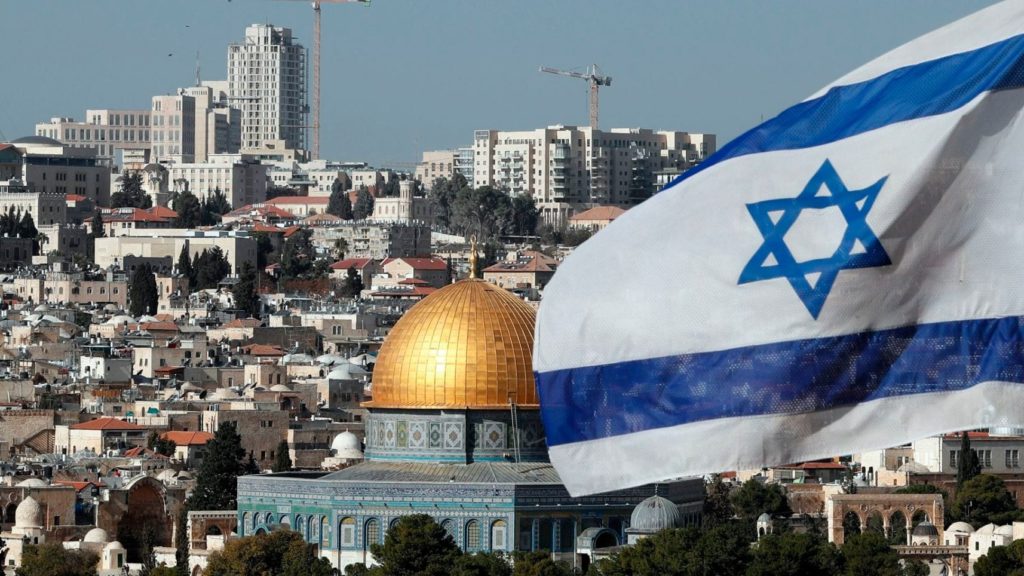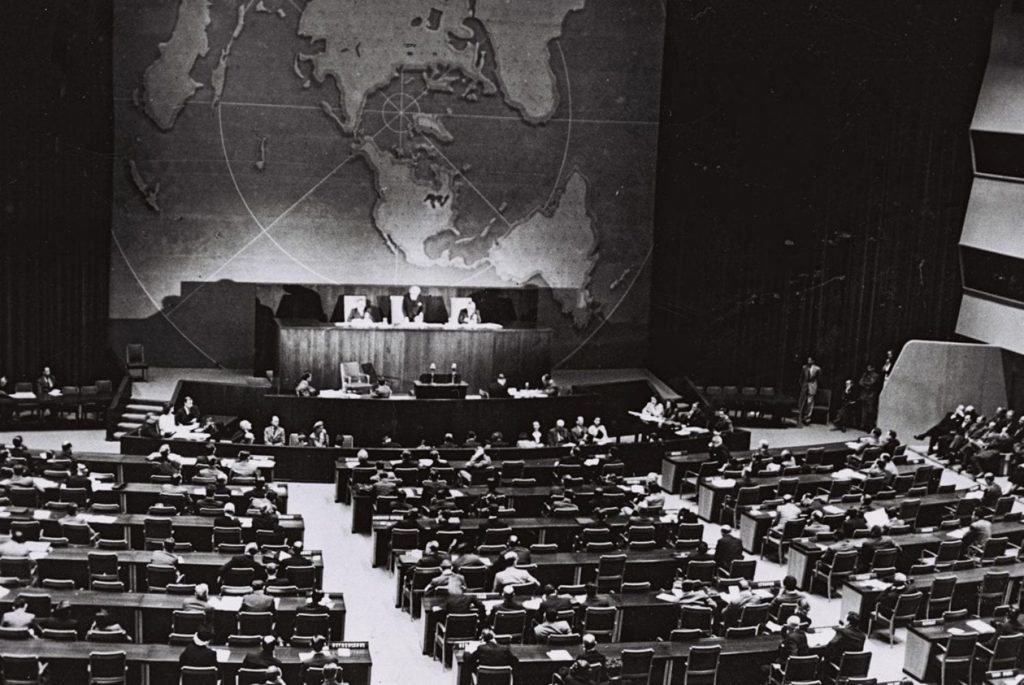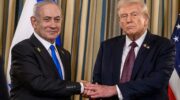US and Israeli flags beaming onto Jerusalem wall side-by-side. (photo credit: MARC ISRAEL SELLEM/THE JERUSALEM POST)
The following articles provide background and perspective on President Trump’s announcement regarding Jerusalem as the capital of Israel. The issue has its roots in history and in the hearts of billions of adherents of the world’s three most populous religions.
The following article appeared in LobeLog on Monday, and reports Trump’s ties to Sheldon Adelson – or to be more precise, to Sheldon Adelson’s wallet.
Trump’s Biggest Donor Pushed For Jerusalem Embassy Move
by Eli Clifton
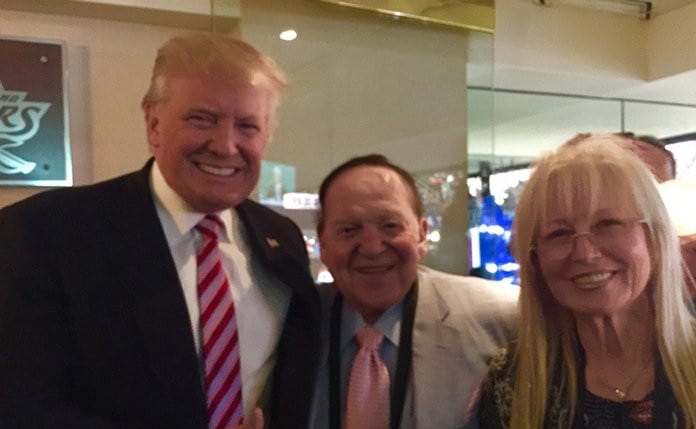
On Wednesday, President Donald Trump may announce U.S. recognition of Jerusalem as Israel’s capital while continuing to keep the U.S. embassy in in Tel Aviv. The move goes toward fulfilling his campaign promise, during a speech to the American Israel Public Affairs Committee (AIPAC), to move the embassy to Jerusalem.
It’s still uncertain if Trump will go through with this plan, but the pressure on Trump goes deeper than a promise to voters. His biggest campaign contributor, billionaire casino magnate Sheldon Adelson, is showing growing impatience with Trump’s slowness in moving the embassy, which would be a provocation to Palestinians who claim Jerusalem as the capital of a future Palestinian state. For this reason, past presidents have refused to move the embassy on grounds that it would upset potential talks between Israeli and Palestinian negotiators.
Before Trump was even sworn in as president, Jared Kushner, Trump’s son-in-law, showed a remarkable willingness to follow directions from Israel’s far-right prime minister, Benjamin Netanyahu. The transition team appears to have worked at the request of Netanyahu to defeat a UN resolution criticizing Israel’s ongoing settlement construction. Reporting on Friday advanced the story, revealing that Kushner told former National Security Advisor Michael Flynn to call members of the Security Council in an effort to stop the vote, a potential violation of the Logan Act, which criminalizes negotiations by unauthorized persons with foreign governments having a dispute with the U.S.
When the Trump White House hasn’t been quick enough to back Netanyahu or Adelson’s proposals, Adelson, who was reportedly in close contact with Kushner during the campaign, has been quick to express his displeasure.
Adelson, who once accused Palestinians of existing “to destroy Israel,” was reportedly “furious” with Secretary of State Rex Tillerson in May for suggesting in a Meet The Press interview that moving the embassy should be contingent on the peace process. Axiosr eported:
[S]ources say the Las Vegas billionaire doesn’t buy the argument that the embassy move should be contingent on the peace process. He has told Trump that Palestinians are impossible negotiating partners and make demands that Israel can never meet.Adelson and his wife Miriam spent more than $80 million on Republicans in 2016, and he gave $5 million to Trump’s inauguration.
Adelson and his wife Miriam also contributed $35 million to help elect Trump.
The Las Vegas Review Journal, which is owned by Adelson, wrote in October, “The Adelsons reportedly have been disappointed in Trump’s failure to keep a campaign pledge to move the U.S. Embassy to Jerusalem on his first day in office.”
And before the funder got on the Trump bandwagon, candidate Trump was outspoken about Adelson’s intentions in putting his money behind candidates. He infamously taunted Sen. Marco Rubio (R-FL), who in October 2015 was a frontrunner to secure Adelson’s backing, tweeting:
Sheldon Adelson is looking to give big dollars to Rubio because he feels he can mold him into his perfect little puppet. I agree!
— Donald J. Trump (@realDonaldTrump) October 13, 2015

